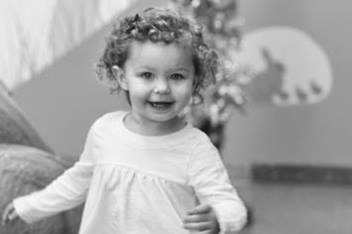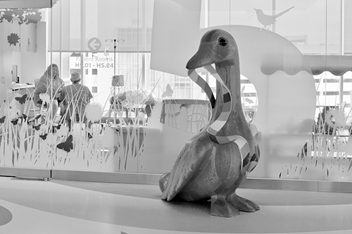Transplant Guide
Having clear answers to your questions is often the first and most important step when facing a possible organ transplant. We have compiled answers to the questions we hear most often about. To read our Q&A, simply click on each of the questions below.
If your heart or lung specialist determines that a transplant may be necessary, a referral is made to Nationwide Children's Hospital’s Lung or Heart-Lung Transplant Program. You will undergo a series of medical tests and a comprehensive evaluation which will confirm your diagnosis and determine the severity of your lung and/or heart disease. You will be evaluated on an outpatient basis to receive the following tests:
-
Complete history, physical exam and review of medical records
-
Blood work and chest X-ray
-
CT scan of your chest and abdomen
-
Heart tests, including an ECHO and cardiac catheterization
-
Pulmonary function tests and lung perfusion scan
You also will have consultations with pulmonologists, surgeons, transplant nurse coordinators, psychiatrists/psychologists, social workers, and pulmonary rehabilitation specialists. The evaluation process takes approximately three days and is done on an outpatient basis. Patients and their families traveling from other regions may utilize our Ronald McDonald House for accommodations during the evaluation process.
If you are determined to be a candidate for a lung or heart-lung transplant, the transplant coordinator and social worker will assist you in the coordination of all pre- and post-transplant services and resources. Our team will carefully guide you through the process of identifying and obtaining appropriate financial resources.
This depends on your diagnosis, severity of disease, blood type, and the size of your lungs. Generally, the wait time can be approximately three months to one year. You will be involved in a pulmonary-rehabilitation program while waiting for a lung transplant.
From the date of transplant to discharge, the average inpatient stay for a lung transplant recipient is 14 days. After the transplant, you will receive follow-up care from the Children’s Hospital transplant team. Lab work, X-rays and pulmonary function tests will be reviewed by the pulmonologist. The transplant nurse coordinator or the transplant social worker will facilitate discharge planning and any lodging accomodations that may be needed in the Columbus area during the first few months of recovery. The lung and heart-lung transplant team, in conjunction with the primary care physician, will be responsible for your long-term follow up.
After the transplant surgery you will begin taking medications to prevent rejection and infection. Your body sees the new lung(s) and/or heart as “foreign”; as a result, your body’s white blood cells will attack it. You will be given immunosuppressive drugs to prevent your body from attacking the new lungs and/or heart.
Rejection can occur at any time following transplant surgery. However, the first episode will generally occur within the first six months after surgery. Rejection episodes are expected. Other than taking the prescribed medications, there is nothing that can be done to prevent them.
Another major effect of immunosuppression is the increased risk of infection. The drugs used to prevent rejection suppress the cells that help prevent various types of infection in your body. You will be given separate medication(s) to prevent infection.
You will be monitored in the clinic for signs and symptoms of both rejection and infection. Your X-ray, pulmonary function tests, exercise oximetry, blood work, and clinical signs and symptoms will be reviewed at each visit.
Please plan to arrive 15 minutes prior to your scheduled appointment time. Sending the following information to the transplant coordinator at Children’s Hospital prior to your appointment will help us serve you more efficiently:
-
Recent X-rays, CT scan of chest and medical records, including an immunization record.
-
If you were referred to Children’s Hospital, please bring the name, address and phone number of the referring physician.
-
If covered by private insurance, please bring your insurance card, the name of your insurance carrier, the plan name, policy or group number, and the phone number of the insurance company.
-
Most insurance companies require pre-authorization. Please bring your copy of the referral authorization form.
-
Cash, check, or major credit card to cover your co-pay if you are covered by insurance, or to cover the amount of the office visit if you are self-pay.
Pulmonologists: These physicians are trained in the diagnosis and treatment of lung disease. The pulmonologist will provide your pre- and post-transplant medical care.
Cardiothoracic surgeons: These are physicians that are trained in cardiac (heart) and thoracic (chest) surgery. These are the physicians that will perform your lung or heart-lung transplant surgery.
Transplant (nurse) coordinator: The lung transplant coordinators are trained nurses in transplantation. They coordinate your pre- and post-transplant care, including patient education.
Anesthesiologists: These physicians administer the general anesthesia that will put you to sleep for the surgery. Throughout the surgery, the anesthesiologists will monitor your blood pressure, heart rate and oxygen saturation.
Cardiologists: These are the physicians who specialize in the diagnosis and treatment of heart disease. Patients requiring a cardiac evaluation will see the cardiologist for the pre-transplant evaluation.
Respiratory and physical therapists: The therapists will work with you to develop an individualized pulmonary rehabilitation exercise program. These exercises may include walking, biking and using a treadmill. The purpose of this is to get you as strong as possible before transplant. Pre-transplant pulmonary rehabilitation has been proven to make recovery after transplant easier.
Social worker: The social worker will be available to help you with your emotional, social, psychological and financial needs. The social worker also is responsible for the support group offered to patients and their families.
Psychiatrists/psychologists: These physicians will meet with you prior to the transplant surgery and will be available for ongoing counseling, as needed.
Dietician: The dietician will help you achieve and maintain optimum nutritional status that will help minimize your recovery time.
Financial coordinator: The financial coordinator, along with the nurse transplant coordinator and the social worker, will assist you in all aspects of coordinating your financial and insurance concerns and questions.



